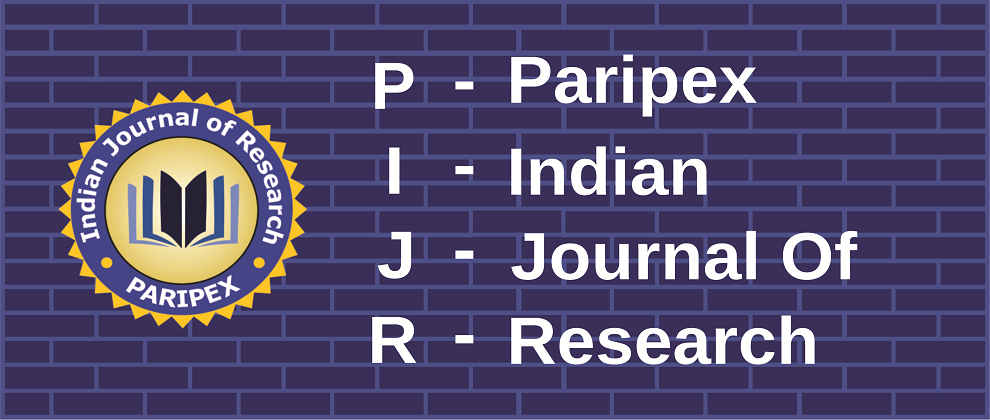Volume : VIII, Issue : VIII, August - 2019
EFFECT OF CROPSIL ON THE YIELD OF THOMPSON SEEDLESS GRAPES
V. C. Malshe, Rajan Raje, Shailesh Chidrawar, Rupali Hande
Abstract :
Silicon is the second most abundant element in the earth crust after oxygen. (28.8%) and is mostly found as silicon di oxide or as a compound with iron, aluminium or calcium as their silicate. It is also found as Silicon Di Oxide as simple sand. By ashing a number of plant species, we have observed it to be a part of all plant material without exception, not the part contributed by the dirt or dust. All plants up take up silica as silicic acid dissolved in ground water as a complex with Humic acid or fulvic acid. Crops like rice, grass, sugarcane have considerably higher concentration of silica, also varying from part to part. For example, rice husk contains as much as 28% silica, probably the highest in any plant matter. This is the reason for the highest water requirement of rice plantation. Silicon present in the soil is in a polymeric form, which is unavailable form of Silicon for plant uptake. Generally, plants uptake monomeric form of Silica in soil i.e. plant available silica as a complex with humic or fulvic acid, a poly phenolic substance formed by degradation of lignin in the ground. Mono silicic acid (H4SiO4) or Ortho silicic acid is the only form of Silicon di oxide that is completely bio–available to the plants. As a salt of sodium, potassium silicic acid is too strongly bonded and can not be picked up by plant matter. There is, therefore a need to stabilize ortho silicic acid in a monomeric form. The acid form of monomeric silicic acid in water is very unstable and results in polymerization. The rate is highest at 7 pH. Acidic solutions are able to retain monomeric form for little longer. NiChem Solutions, Thane have developed a new product – CROPSIL based on monomeric silica to fulfil the requirement of Silicon as a beneficiary nutrient in plants, a composition which is highly stabilized in monomeric form. As of writing this, the formulations have been stable for as long as six years with no signs of polymerization or insolubility. CropSil is a unique formulation of highly stabilized Orthosilisic acid (Monosilisic acid form). CropSil contains 3% Orthosilisic acid which is 99.9% available form of Silicic acid. It has an alkaline pH. CropSil acts as a plant stress manager, immunity booster, yield improver and a bio stimulant. It is a residue free, non–toxic and eco–friendly product. It has a good stability compared to any other preparation in market and does not gel on shelf when stored in air–tight conditions away from direct sunlight. ( Patent for the product is pending in India and US. The International Publication number of CropSil is WO2016/135752 A2.) Grape is a very sensitive crop in terms of atmospheric conditions, water availability and sugar content. Any biotic or abiotic stress would affect the quality and quantity output of grapes. Optimum berry size and sugar content are key factors for grapes to be acceptable especially in export market. Silica is known to help plants combat any kind of stress and boost productivity. We, thus, conducted an experiment of CropSil on Thompson Seedless Grapes to study the grape quality parameters and increase in yield. This experiment was conducted at Khedgaon (Nasik) during 2016–2017. Three foliar applications of CropSil were taken after pruning at 15 days interval @1.5ml/lit of dose. Morphological characters were recorded after 2nd spray of CropSil. Berry quality, size and yield increase (%) were recorded at harvest. At the end of the experiment, we found that in CropSil treated plants, berry weight increased by 37.05%, bunch weight by 28.58%, berry diameter by 8.17%, berry length by 9.92% and Brix increased by 1.8 unit as compared to Control. Additionally, we observed that Copper toxicity was also reduced in treated plots as compared to control.
Article:
Download PDF
DOI : https://www.doi.org/10.36106/paripex
Cite This Article:
EFFECT OF CROPSIL ON THE YIELD OF THOMPSON SEEDLESS GRAPES, V.C. Malshe, Rajan Raje, Shailesh Chidrawar, Rupali Hande PARIPEX‾INDIAN JOURNAL OF RESEARCH : Volume-8 | Issue-8 | August-2019
Number of Downloads : 221
References :
EFFECT OF CROPSIL ON THE YIELD OF THOMPSON SEEDLESS GRAPES, V.C. Malshe, Rajan Raje, Shailesh Chidrawar, Rupali Hande PARIPEX‾INDIAN JOURNAL OF RESEARCH : Volume-8 | Issue-8 | August-2019


 MENU
MENU

 MENU
MENU


